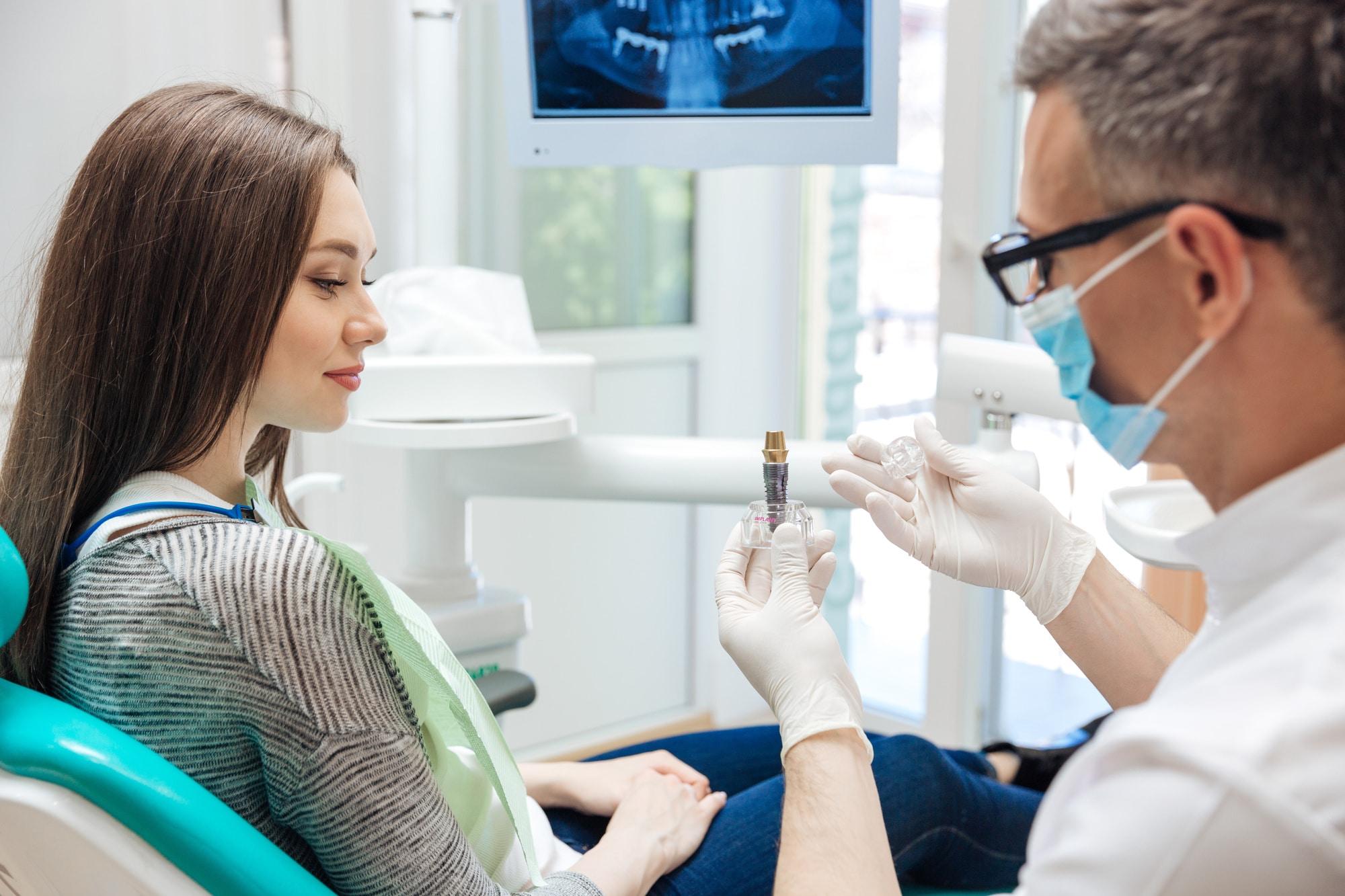Essential Post Care Dental Implants Ensure Success with Expert Aftercare

Getting a full, confident smile with Dental Implants Aftercare feels great. But the real win for this top-notch dental fix comes not just from the surgeon's skill. It also relies a lot on you. Paying close attention to aftercare is key for good healing. It helps your implant settle in and keeps you happy with it for years. This guide gives you the vital know-how to get through your recovery. It helps lower problems and makes sure your dental implants last a very long time.
The first days after dental implant surgery are super important. Being careful can really change how things turn out. Managing pain, bringing down swelling, and stopping infections are big deals in these early weeks. By sticking to your dentist's exact advice and using these trusted aftercare methods, you can have a smooth, comfy healing time. This sets up your implant for lasting success.
Understanding the Immediate Post-Operative Period
Right after your dental implant surgery, the first 24 to 72 hours are the most important. How you care for your mouth now truly sets the stage for a smooth healing journey. This is when your body starts to recover and your new implant begins to settle into its spot. Knowing what to do in these first few days can make a big difference in your comfort and the overall outcome.
Managing Discomfort and Swelling
It's normal to feel some pain and see a bit of swelling after surgery. Your dentist will likely give you pain medicine. Take this exactly as prescribed to keep discomfort low. Using ice packs on your face, outside the surgical area, for 15-20 minutes at a time can also help reduce swelling. Do this off and on for the first 24-48 hours. If your pain gets much worse or swelling keeps growing after two to three days, you should call your dental professional right away.
Bleeding Control and Gauze Management
A little bleeding or oozing is expected after dental implant surgery. To control this, bite down firmly on the gauze pads placed over the surgery site. Change the gauze every 30 to 45 minutes until the bleeding slows or stops. A slight pink tint to your saliva is normal for the first day or so. If you have heavy bleeding that fills your mouth, put a fresh, damp gauze pad directly on the area and bite down hard for 30 minutes. If heavy bleeding continues, contact your dentist.
Protecting the Surgical Site
Keeping the surgical area safe is crucial for proper healing. Avoid anything that might mess up the healing tissue or dislodge the implant. This means no spitting hard, no rinsing your mouth too strongly, and definitely no touching the implant site with your fingers or tongue. Try to keep your head slightly elevated, even when resting, to help minimize swelling. Rest up, and avoid strenuous activities that could increase blood flow to your head for a few days.
Daily Oral Hygiene and Preventing Infection
Keeping your mouth clean is vital for success after getting dental implants. You need to clear away food bits and germs without hurting the healing area. This helps keep bacteria from causing problems around your new implant. Good hygiene stops infection and lets your body mend properly.
Gentle Cleaning Techniques
Cleaning around your new implant needs a soft touch. For the first day or two, avoid brushing the surgery spot directly. Your dentist will tell you when it's safe to start. When you do, use a very soft-bristled toothbrush, or a special implant brush, to gently clean the surrounding teeth and gums. Be super careful not to poke or rub the healing implant area. Rinse gently, following your dentist's instructions for any specific mouthwashes.
Recommended Mouth Rinses
Your dentist might give you a special antimicrobial mouth rinse, like chlorhexidine. This rinse helps kill germs and keeps the surgical area clean. Use it exactly as told, usually by gently swishing for 30 to 60 seconds. Do not rinse too forcefully. These rinses are key in preventing infection around your healing dental implant. Never use over-the-counter mouthwashes that contain alcohol, as they can irritate the sensitive tissues.
Diet and Nutrition for Healing
Eating right fuels your body's healing process. Stick to soft, easy-to-chew foods for the first week or two after surgery. Think yogurt, mashed potatoes, soups, and smoothies. Avoid hard, crunchy foods like nuts or chips, and stay away from very hot or very cold items. Don't chew on the implant side if you can help it. Eating a balanced diet with plenty of vitamins and protein supports stronger bones and faster tissue recovery.
What to Expect During the Healing Process
Knowing what happens during healing makes the whole process easier. Your body needs time to mend and for the implant to bond with your bone. This section helps you understand the typical steps, so you know your recovery is on track. It also points out when to worry and call your dentist.
Signs of Successful Integration
As your dental implant heals, you should notice less swelling and discomfort over time. The gum tissue around the implant will look healthy and pink, not red or inflamed. This gradual fading of pain and swelling is a good sign that your implant is settling in. This process, called osseointegration, means your bone is growing around and fusing with the implant. A stable implant feels secure, not loose.
Potential Complications and When to Call Your Dentist
While most recoveries go well, some issues need a professional look. Call your dentist if you notice bleeding that won't stop with pressure. Get in touch if your pain gets worse after the first few days, instead of better. Watch for swelling that increases after 48-72 hours, or signs of infection like fever, pus around the implant, or a bad taste in your mouth. Increased tenderness or a visible implant coming loose also means you need to speak with your dental team.
The Role of Follow-Up Appointments
Follow-up visits with your dentist are super important. These appointments let your dental professional check how your implant is healing. They can remove any stitches, if needed. These checks also let them make sure the implant is stable and integrating well with your bone. Don't skip these crucial check-ups; they help guarantee your implant's long-term success.
Long-Term Care for Dental Implant Longevity
Once your dental implants are fully healed and restored, maintaining them is key. Good, ongoing care makes sure they last a lifetime. Just like natural teeth, implants need daily attention and regular professional cleanings. This keeps your new smile strong and healthy.
Maintaining Impeccable Oral Hygiene
Daily cleaning is non-negotiable for dental implants. Brush your teeth and implants at least twice a day with a soft-bristled toothbrush. Flossing daily, or using special interdental brushes or a water flosser, is also very important. These tools help clean around the implant post and under the crown. They remove plaque and food bits that could lead to gum problems around your implant. Proper hygiene prevents peri-implantitis, a gum disease specific to implants.
Regular Professional Cleanings and Check-ups
Even with excellent home care, professional cleanings are a must. Visit your dentist or hygienist every six months, or as often as they suggest. They use special tools that won't scratch your implants. These visits allow your dental team to thoroughly clean around the implant. They also check its stability and the health of the surrounding gums and bone. Early detection of any issues means quicker, easier solutions.
Avoiding Habits That Harm Implants
Certain habits can put your implants at risk. Avoid biting down on very hard items like ice cubes, hard candies, or pen caps. These can crack your implant crown or even damage the implant itself. Smoking is particularly bad for implant health; it can hinder bone support and lead to implant failure. Excessive alcohol also slows healing and can impact gum health. Ditching these habits protects your investment and ensures your implants last.
Lifestyle Factors and Their Impact on Implant Success
Your general health and daily habits play a big part in how well your dental implants do. What you put into your body and how you live can greatly affect implant healing and their lifespan. Good choices help your implants thrive, while bad ones can cause problems.
The Dangers of Smoking on Implant Survival Rates
Smoking is one of the biggest threats to dental implant success. The chemicals in tobacco slow down healing and reduce blood flow to the gums and bone. This makes it harder for the implant to bond with your jawbone. Studies indicate smokers have a significantly higher risk of implant complications compared to non-smokers, sometimes double the failure rate. Quitting smoking before and after surgery vastly improves your chances of a successful outcome.
The Importance of a Balanced Diet
Eating well does more than just keep you healthy; it supports your bones and immune system. A diet rich in vitamins, minerals, and protein helps your body repair and build strong bone around your implants. Foods high in calcium and Vitamin D are especially good for bone health. Good nutrition helps your immune system fight off infections. This makes sure the implant area stays healthy.
Managing Chronic Health Conditions
Certain health issues, like diabetes or autoimmune diseases, can impact how your body heals. If you have any chronic conditions, tell your dentist. It's vital to manage these conditions well under your doctor's care. Stable blood sugar levels for diabetics, for example, can greatly improve healing time and reduce the risk of implant problems. Working with your medical doctor and dentist creates the best environment for your dental implants to succeed.
Conclusion
Following these post-operative care tips helps your dental implant procedure succeed. It also makes sure your new Dental Implants Aftercare, bright smile lasts a long time. Caring for your implants means diligent cleaning every day. It means keeping all your follow-up appointments. And it means living a healthy lifestyle. These are the main things for lasting results. They let you fully enjoy all the great benefits of your dental implants. Keep them healthy, and they'll serve you well for years.
Discover More At:-
Follow Us On Facebook :- https://www.facebook.com/risusclinic/
Follow Us On YouTube :- https://www.youtube.com/@risusclinicistanbul
Follow Us On Instagram :- https://www.instagram.com/risusclinicistanbul/
Email Us :- info@risusclinic.com
Address:- Meşrutiyet, Ebe Kızı Street, Sosko Business Center No:16/A6, 34363 Şişli/Istanbul, Turkey
Call Us :- +90 542 336 64 00






